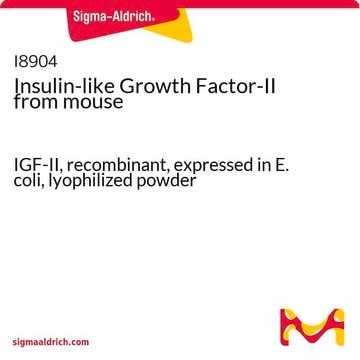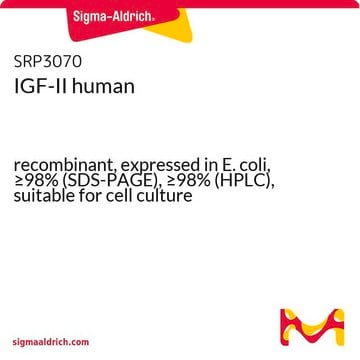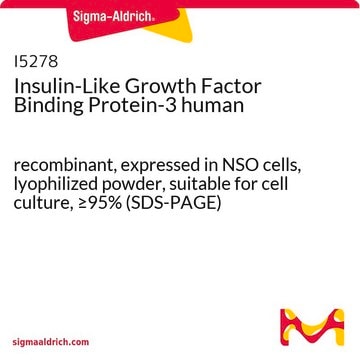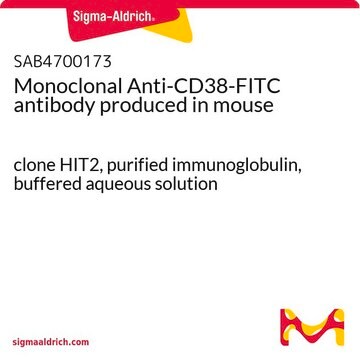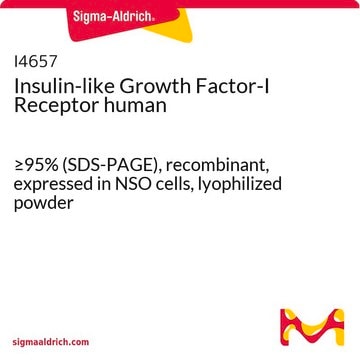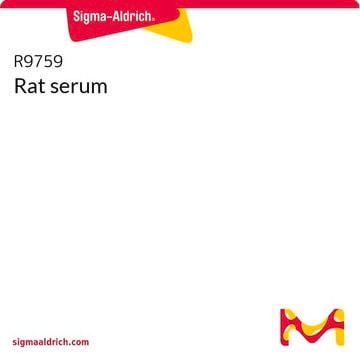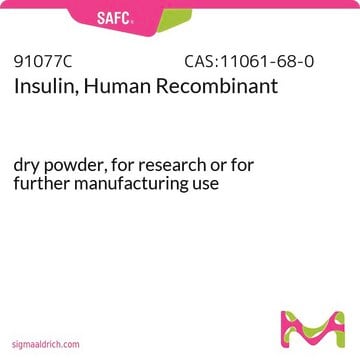I2526
Insulin-like Growth Factor-II human
≥98% (SDS-PAGE and HPLC), recombinant, expressed in E. coli, lyophilized powder, suitable for cell culture
Synonym(s):
IGF-II
About This Item
Recommended Products
product name
Insulin-like Growth Factor-II human, IGF-II, recombinant, expressed in E. coli, lyophilized powder, suitable for cell culture
biological source
human
Quality Level
recombinant
expressed in E. coli
Assay
≥98% (SDS-PAGE and HPLC)
form
lyophilized powder
potency
≤2.0 ng/mL ED50
quality
endotoxin tested
mol wt
7.5 kDa
packaging
pkg of 5X50 μg
pkg of 50 μg
technique(s)
cell culture | mammalian: suitable
impurities
≤0.1 EU/μg
UniProt accession no.
storage temp.
−20°C
Gene Information
human ... IGF2(3481)
Looking for similar products? Visit Product Comparison Guide
Biochem/physiol Actions
Physical form
Analysis Note
related product
Storage Class Code
11 - Combustible Solids
WGK
WGK 3
Flash Point(F)
Not applicable
Flash Point(C)
Not applicable
Personal Protective Equipment
Certificates of Analysis (COA)
Search for Certificates of Analysis (COA) by entering the products Lot/Batch Number. Lot and Batch Numbers can be found on a product’s label following the words ‘Lot’ or ‘Batch’.
Already Own This Product?
Find documentation for the products that you have recently purchased in the Document Library.
Customers Also Viewed
Articles
Insulin-like Growth Factors (IGF)
Our team of scientists has experience in all areas of research including Life Science, Material Science, Chemical Synthesis, Chromatography, Analytical and many others.
Contact Technical Service